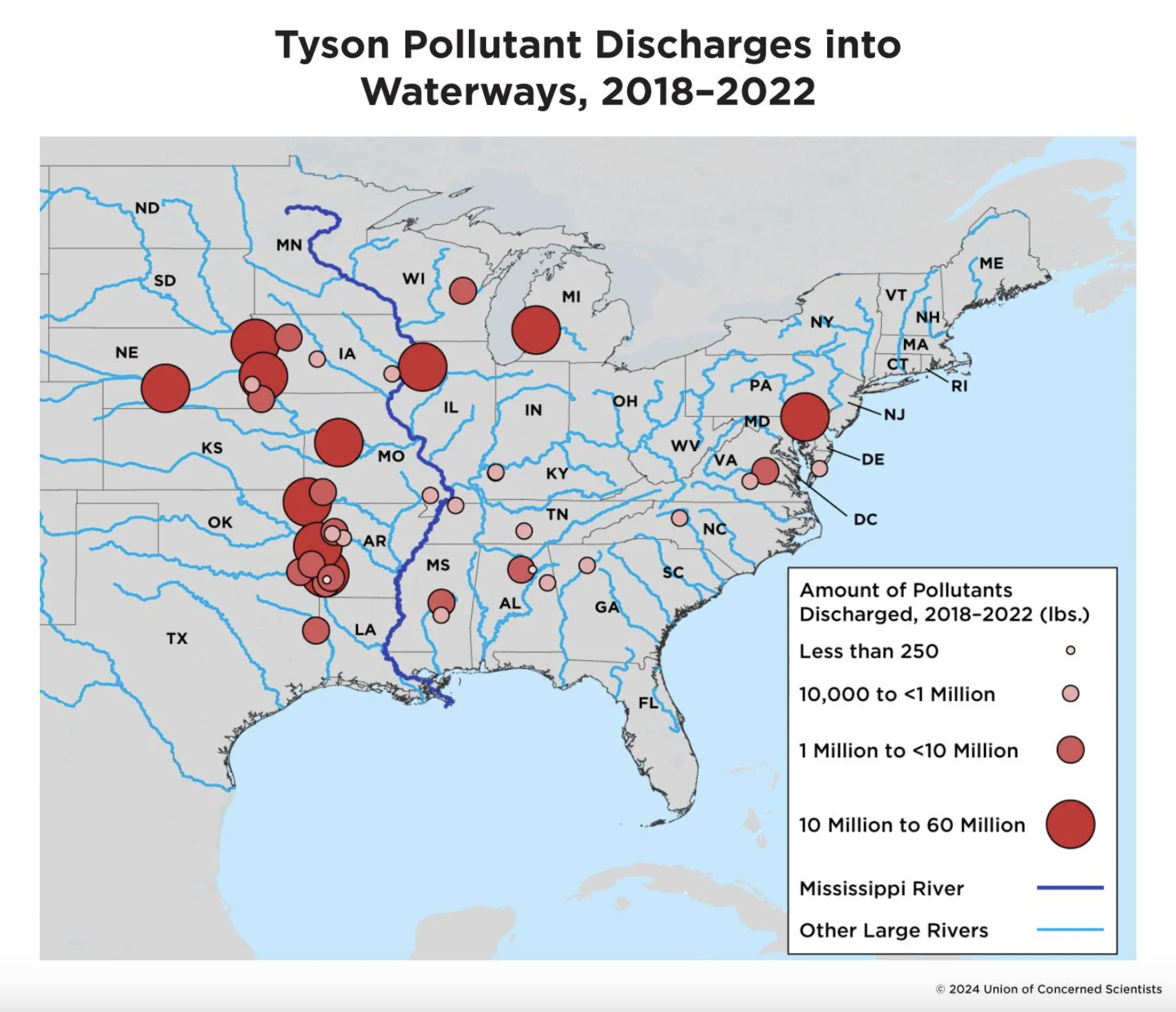New report highlights ongoing pollution by Tyson Foods to US waterways
Amanda LeClaire May 23, 2024The report found Tyson’s food plant in Zeeland, Michigan, to be one of the top three highest polluting plants in the country.

The Lake Huron shoreline.
Tyson Foods, one of the world’s largest poultry producers, has released over 370 million pounds of pollutants into U.S. waterways from 2018 to 2022, according to a recent report.
The Union of Concerned Scientists report, titled “Waste Deep,” shows that Michigan waterways received over 10% of the reported pollution from Tyson plants. Tyson’s food plant in Zeeland, Michigan — located roughly five miles northeast of Holland and 10 miles from Lake Michigan — is one of the top three highest polluting plants in the country, releasing 43.8 million pounds of hazardous wastewater into local waterways over the past five years.
High levels of dangerous pollutants — including nitrogen, phosphorus, chlorides, oil and grease — pose a severe threat to the Great Lakes. These substances are known to trigger algal blooms which are toxic to marine life and can lead to respiratory issues such as asthma and bronchitis in humans.

Dr. Stacey Woods, research director at the Union of Concerned Scientists, says wastewater discharges of this extent are common by Tyson Foods.
“This is business as usual. This is not a spill. Under the federal Clean Water Act, industrial polluters like meat processing plants are required to report their water pollution,” said Woods. “Michigan was the fourth highest state in terms of the amount of water pollution that Tyson dumped directly into our waterways,” said Woods.
Woods also noted that under current EPA regulations, industrial polluters are only required to report certain high quantities of wastewater discharge. She says that means a second Tyson food processing plant in Warren, Michigan, could likely also be releasing hazardous substances into Detroit area watersheds, but those discharge amounts are not legally mandated at this time.
However, that could soon change.
Woods says the EPA is considering revisions to its regulations that would expand reporting requirements and impose stricter pollution limits on industrial pollutors like Tyson Foods.
She says the Union of Concerned Scientists is advocating for more rigorous enforcement of environmental laws and a comprehensive update of state and federal regulations.
Emails sent by WDET to Tyson Foods regarding the study’s findings were not returned.
The Environmental Law & Policy Center released a report in March that showed Michigan’s largest livestock operations — known as Concentrated Animal Feeding Operations or CAFOs — are also major polluters to the state’s waterways.
The report, which includes the latest five-year agricultural census data published by the U.S. Department of Agriculture, shows that while Michigan’s 290 permitted CAFOs represent less than 1% of the 40,000-plus farms in the state, animals on those CAFOs generate 17 million more pounds of fecal waste per day than the state’s entire population of 10 million humans.
The report also provides recommendations for how state lawmakers and regulators can better curb pollution to Michigan’s waterways from CAFOs and other industrial operations in the state.
WDET’s Jenny Sherman contributed to this report.
Trusted, accurate, up-to-date.
WDET strives to make our journalism accessible to everyone. As a public media institution, we maintain our journalistic integrity through independent support from readers like you. If you value WDET as your source of news, music and conversation, please make a gift today.
Author
-
 Amanda LeClaire is an award-winning host and producer of CultureShift on 101.9 WDET-FM Detroit’s NPR station. She’s a founding producer of WDET’s flagship news talk show Detroit Today, and a former host/reporter for Arizona Public Media. Amanda is also an artist, certified intuitive and energy healer, and professional tarot reader.
Amanda LeClaire is an award-winning host and producer of CultureShift on 101.9 WDET-FM Detroit’s NPR station. She’s a founding producer of WDET’s flagship news talk show Detroit Today, and a former host/reporter for Arizona Public Media. Amanda is also an artist, certified intuitive and energy healer, and professional tarot reader.

